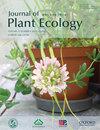贝叶斯信念网络——濒危植物种群保护规划的潜在工具
IF 3.9
2区 环境科学与生态学
Q2 ECOLOGY
引用次数: 0
摘要
贝叶斯信念网络(BBN)作为一种潜在的决策支持工具在自然保护管理中得到越来越多的应用。本研究评估了BBN模型在白头翁保护规划管理中的应用。轧机。以欧洲规模的濒危植物物种为例。贝叶斯网络方法用于开发生物和非生物变量对波兰东北部人口形态发育特征和人口特征影响的模型。从4个最大的森林复合体的47个站点收集的现场数据使用GeNIe 2.0开发了一个模型。诊断试验和敏感性分析表明,对种群特征影响最大的是林下竞争种数。验证结果表明,所建立的模型能够有效地评价生境条件对种群特征的影响,而种群特征决定着该分类单元的繁殖。利用BBN模型确定了能保证白杨正常生长发育的最佳生境条件。最后,我们指出了保护措施,以帮助保护所考虑的物种。因此,建议将该模型作为支持濒危植物物种保护规划决策的潜在工具。本文章由计算机程序翻译,如有差异,请以英文原文为准。
Bayesian belief networks - a potential tool for conservation planning of endangered plant species populations
Bayesian belief networks (BBN) have been increasingly used as a potential decision supporting tool useful in conservation management. We assessed the application of the BBN model to support management in conservation planning of Pulsatilla patens (L.) Mill., the endangered plant species on a European scale, as an example. The Bayesian network approach was used to develop a model of the impact of biotic and abiotic variables on the morphological-developmental features and demographic features of the population in NE Poland. Field data collected from the total number of 47 sites in the 4 largest forest complexes were used to develop a model using GeNIe 2.0. The diagnostic testing and sensitivity analysis indicated that the greatest impact on the population features was the number of competing species in the forest undergrowth. Validation has shown that the developed model is effective for evaluation of the impact of habitat conditions on the population features deciding about the reproduction of this taxon. The BBN model was also used to define optimal habitat conditions ensuring regular growth and development of P. patens. Finally, we indicated the protective treatment to help preserving the species considered. Therefore, the developed model is recommended as a potential tool to support decision-making aimed at the conservation planning of endangered plant species.
求助全文
通过发布文献求助,成功后即可免费获取论文全文。
去求助
来源期刊

Journal of Plant Ecology
生物-植物科学
CiteScore
4.60
自引率
18.50%
发文量
134
审稿时长
3 months
期刊介绍:
Journal of Plant Ecology (JPE) serves as an important medium for ecologists to present research findings and discuss challenging issues in the broad field of plants and their interactions with biotic and abiotic environment. The JPE will cover all aspects of plant ecology, including plant ecophysiology, population ecology, community ecology, ecosystem ecology and landscape ecology as well as conservation ecology, evolutionary ecology, and theoretical ecology.
 求助内容:
求助内容: 应助结果提醒方式:
应助结果提醒方式:


